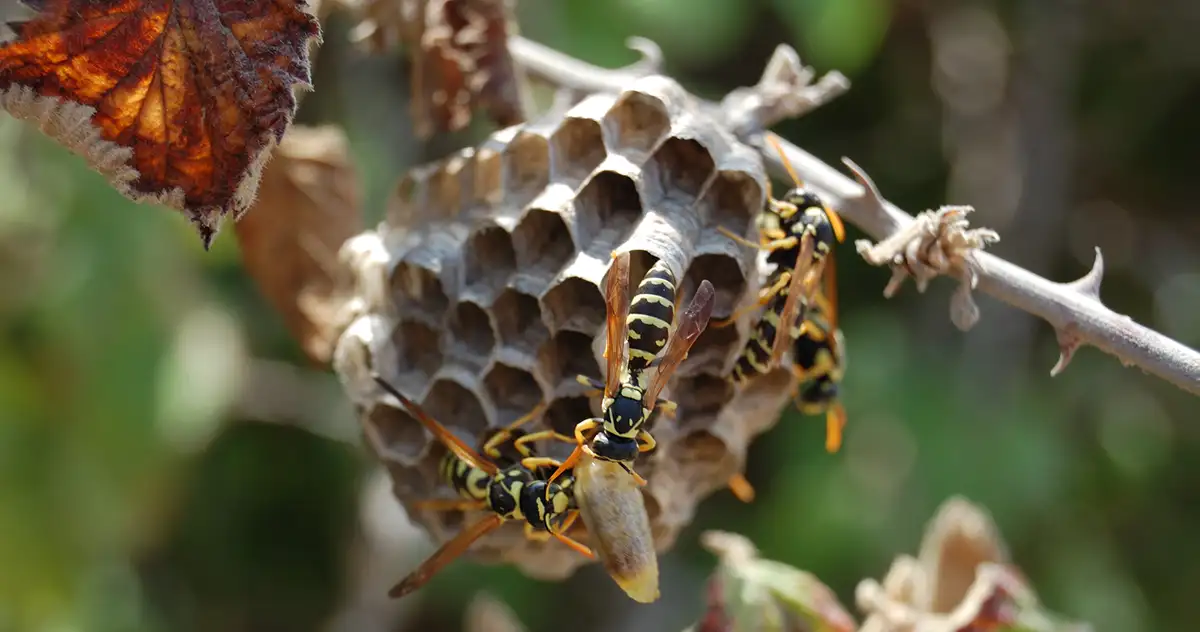Have you ever wondered why bees, wasps, and hornets are more aggressive in the fall? Several factors contribute to their behavior, but it mostly boils down to the fact that winter is coming.

Have you ever wondered why bees, wasps, and hornets are more aggressive in the fall? Several factors contribute to their behavior, but it mostly boils down to the fact that winter is coming.
By the time fall comes around, wasp and hornet populations are at their largest. However, most of their food source for the year has already dwindled, causing them to become more aggressive as they fight for food.
A nectar dearth is a time of nectar scarcity. In fall, as winter approaches, bees’ natural sources of nectar and pollen are drying up. This is just part of the life cycle of flowers and other plants that provide food for the bees, but it definitely creates a nectar dearth.
A food shortage means hungry bees. And hungry bees become aggressive as they compete for the reduced amount of food that’s available. That’s why we make sure to safely remove bees from areas where you may frequent to keep both your family and the bees safe.
The reduction of their food supply is exacerbated by the fact that the number of mature wasps, hornets, and bees in a colony is largest during the fall.
This is nature at work giving the queen the resources she needs to prepare for her winter hibernation. The queen is often the only one who will survive during the winter. Then in the springtime, the queen can awaken from her winter sleep to lay her eggs for the new colony.
Since colonies for these insects are at their end during the fall, they are often more active as they try to prepare for their queen. They will also become more aggressive as they try to keep her safe before she settles down for the winter, causing even bees, who usually don’t attack unless provoked, to sting humans.
Threats to their nest — and to their queen — make hive insects more aggressive in the fall. These outside threats may be wasps, hornets, and bees from other colonies. Or they could be other animals that are also preparing for winter, like raccoons, opossums, skunks, etc.
Wasps and hornets attack bees all year round, and with larger populations in the fall, bees may become even more likely to defend themselves and their hives with the larger populations of wasps and hornets becoming a threat.
If you’re noticing aggressive wasps, hornets, and bees around your home, you need to get professional help. Unless you have the proper experience in dealing with them, this is not the time to try handling things on your own.
Classic Pest Control and Insulation is here to help get rid of aggressive wasps and hornets near your home and to safely relocate aggressive bees.
We’d love to discuss your specific situation in more detail and help you keep your home pest-free and safe for your family. Please contact us today for a free estimate! Call us toll free at (425) 259-0008 or simply fill in the request form on our Contact page.
We look forward to helping you.